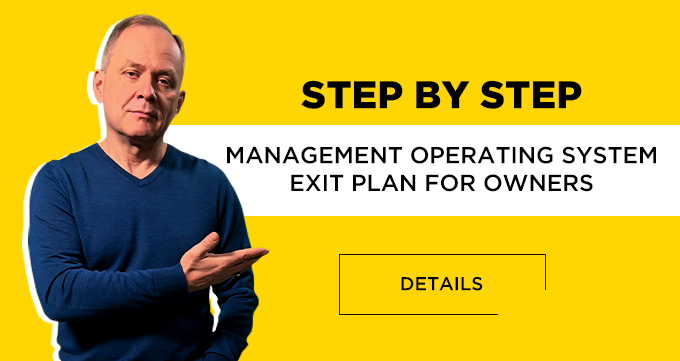Executive Director: How to Choose and What Functions to Entrust
When a business owner decides to step away from routine tasks, they transfer management to an executive director. This individual manages the team, finances, and the company's reputation, so their effectiveness directly impacts business success. In this article, I will discuss how to choose the right executive director and what functions to entrust to them.
Functions of an Executive Director
The executive director reports to the owners or founders of the company. Their responsibilities include:
- Implementing the company's strategic plan
- Controlling and inspecting the activities of departments
- Preparing departmental development plans
- Achieving sales targets
- Appointing department heads
- Increasing company profit
- Creating and optimizing business processes
- Managing enterprise resources: human resources, financial resources, and material assets
- Establishing work standards and corporate culture
- Coordinating the work of all departments
- Building relationships with clients, partners, and suppliers
- Motivating employees, managing recruitment, and staff training
Who to Choose for the Executive Director Position
An effective executive director is a disciplined and organized individual who can handle large volumes of information, is stress-resistant, and communicative.
One of the key characteristics of a successful director is stability and the ability to complete what has been started. Consider Apple under Tim Cook: despite pressure and competition, he managed to consistently continue the company's growth by implementing a clearly planned strategy, created by Steve Jobs.
Furthermore, an executive director must possess a foundational understanding of entrepreneurship and management, know financial planning, and be able to interact effectively with the team. For example, at Amazon, Jeff Bezos always emphasized developing managerial skills in leaders, understanding that competent human resource management is key to the company's success.
Another important requirement: the executive director must be easy to control. They are obliged to accept and execute the owner's decisions without resistance, as only an individual capable of obeying can effectively lead a team.
How to Conduct an Interview with an Executive Director
During an interview, avoid superficial questions. Instead, ask the candidate about specific results and the methods used to achieve them.
For example, if a candidate claims they implemented a CRM system in their previous company, ask them to explain in detail: who initiated the project, what administrative management methods were applied, and what results the implementation brought. Such questions will reveal the candidate's real contribution.
Grow a Director Internally or Hire Externally
When I first hired an executive director from outside for my medal manufacturing company, it ended in failure. The person had management experience but poorly understood the specifics of the business and could not effectively solve current problems. Since then, I prefer to cultivate directors from my own employees.
If you still wish to hire externally, plan for a prolonged probationary period with immersion in all company processes. This is how Google operates, for instance, where top managers undergo an adaptation period, working in various departments to understand the enterprise's specifics and human resources.
How the Executive Director Works with the Team
The executive director frees the owner from routine management. They set tasks, monitor execution, select optimal solutions, and provide the owner with only the final result.
This is especially important in large-scale companies with branches, such as Starbucks, where regional executive directors fully control operational management, allowing the owner to focus on strategy and business growth.
Can an Executive Director Become a Partner?
Often, entrepreneurs offer partnership to an executive director, fearing the loss of a valuable employee. However, my experience suggests that the best motivation for a team lies in ambitious goals and a strong company ideology.
If you still want to further retain an employee, you can use "golden handcuffs" — bonuses and a percentage of the company's profit, paid at the end of the year. A similar approach is used in large corporations like Microsoft, where top management receives a significant portion of their compensation in the form of annual bonuses and stock.
I only offer partnerships to directors who have independently built effective business processes and achieved high financial results in a branch. This guarantees that the partner will be able to handle the business owner's tasks.
Conclusion
An executive director must be stable, manageable, and competent in managing the enterprise's human and financial resources. To choose the right person, ask about specific results and the methods used to achieve them. And to effectively motivate and retain employees, set ambitious goals and provide attractive working conditions.
This is the very approach I use in the Business Booster program, where we teach entrepreneurs how to successfully delegate management and scale their businesses.

